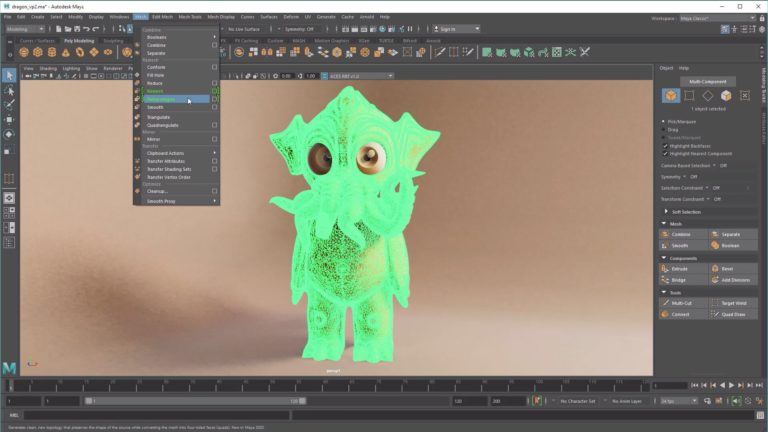
On Adaptation, Culture, and Diversity ... with the World Cup and the Olympics Looming
Clan VFX has been providing post-production services, visual effects and 3D animations to international clients like Coca-Cola, Samsung and Adidas for many years, but with the FIFA World Cup coming to Brazil in 2014 and the Summer Olympic Games headed to Rio in 2016, the 30-person facility in Sao Paulo, Brazil, is sure to see an uptick in business in the months and years ahead. We talked to Clan's CEO André Pulcino about the state of Brazil's VFX industry and what sets it and the country's larger production and post community apart.
To see some of Clan VFX's recent projects, watch the reels at the company's website.
Q: How does the culture of Brazil, where you live and work, influence your studio's creative output?
A: Brazil offers a very diverse and rich culture. To live here is to constantly nurture our creativity, which is in fact the core of the VFX business. As a multicultural country, Brazilian artists are influenced by so many different sources—it's hard to name them. But because of that, in my opinion, we are all adaptive and offer so many different artistic styles to our clients.
Q: What's unique about the Brazilian VFX industry, and how has it changed throughout the course of your career?
A: Many things have improved in Brazil in the past 15 years. The most significant change, specifically in the Brazilian VFX market, would be the overcoming of an outdated business model created back in the mid-90s, when services where charged by the hour and the engagement of the post-production companies with the rest of the production chain was very limited. We’ve watched technology and the quality of VFX advance tremendously over the year, allowing for more substantial collaboration on projects. As a result, visual effects is a critical part of the much broader audiovisual industry here. In Brazil, instead of being merely sub-contracted, post-production today really partners with its clients, directly impacting the results, both financial and artistic, of the products that these interdependent players have to offer. And that's true whether you are a production company, a studio, an agency or an advertiser.
Q: In what way has your country helped promote the advancement of visual effects, not only in the national broadcast and film markets but also in the international production and post communities?
A: Brazil has always been very observant of the digital effects market and kept itself updated as new technologies were created. We might not have been able to offer as many “stations” as abroad, due to cost limitations (especially import taxes) and the size of our market, but we have always invested in new technology. Regarding technology and artistic potential, however, I'd say that the Brazilian VFX industry has grown along with the advancement of post-production itself. There were several limits to what could be achieved with the tools available 15 years ago, but this was limited by the reality of post-production technology worldwide. But now, the Brazilian post-production market is considered one of the most developed in the world, with the same quality, technology and talent as those available in other major facilities around the globe. On top of that, most Brazilian VFX artists currently working are at a supervisor’s level and many are hired to work abroad, proof that our style and skills are admired worldwide. I have many friends that have worked with me at studios in London and New York.
Q: Is there an advantage to working in Brazil, compared to doing VFX work in other countries?
A: Absolutely. Adaptation and diversity would be the words that summarize our main advantages over other countries. Being in a market with its peculiar modus operandi with respect to deadlines, costs, processes, and relationships makes Brazilian VFX houses very adaptive and multidisciplinary.
Q: There are a few big international sporting events heading your way soon. How will they impact your work and the Brazilian production and post markets as a whole?
A: The build-up to the World Cup and Olympic Games will turn Brazil into a production center with an even greater volume of work to be done in the next months. I've no doubt that Brazilian companies will certainly be helpful to international brands that need to produce with a local feel, as well as campaigns that need to be understood by the local market.
Crafts: VFX/Animation
Sections: Creativity
Topics: Q&A Andre Pulcino brazil Clan VFX VFX VFX Industry World Cup
Did you enjoy this article? Sign up to receive the StudioDaily Fix eletter containing the latest stories, including news, videos, interviews, reviews and more.












I had experience working with Brazilians in production and post and find Mr. Pulcino’s comments a bit patriotic and misleading. I thought Studio Daily would research their interview subjects before, but I guess that never happened for this article. The only element of his comments that is worth anything is the “costs” of animators which are cheaper then US animators. But not really that much cheaper. Maybe paying a little extra and not having any delays is worth that extra? I would think so!
And lastly his comment “superior’s level and many are hired to work abroad, proof that our style and skills are admired worldwide”. NO! They are hired abroad because they know how to push them blue looking buttons that create them cube looking (they don’t rally know what its called or what their fundamental are) thing in Maya. They are hired because of the salary and opportunity to work abroad. According to this article the best place to hire cheap Brazilian animators is abroad where most of Mr. Pulcino’s friends went.
I must advise my fellow producers in here that Brazil is a difficult place to do any type of business. I had problems with productions in that country and strongly advice extreme caution when contracting services. If the budget has a few extra then its better to hire Mr. Pulcino’s Brazilian friends abroad.
Brazil is a beautiful country with great food, good looking women, great beaches and amazing party’s. I am a Brazilian and recommend my fellow producers in here a visit as tourist ONLY. Business in Brazil? Forget it!
Steven please turn the volume down a notch or two. You’re generalising things out and what you said could be said about most nations in the world, including the US and it’s people.
Not to mention that calling brazilians of “button pushers” is offensive and couldn’t be farthest from the truth.